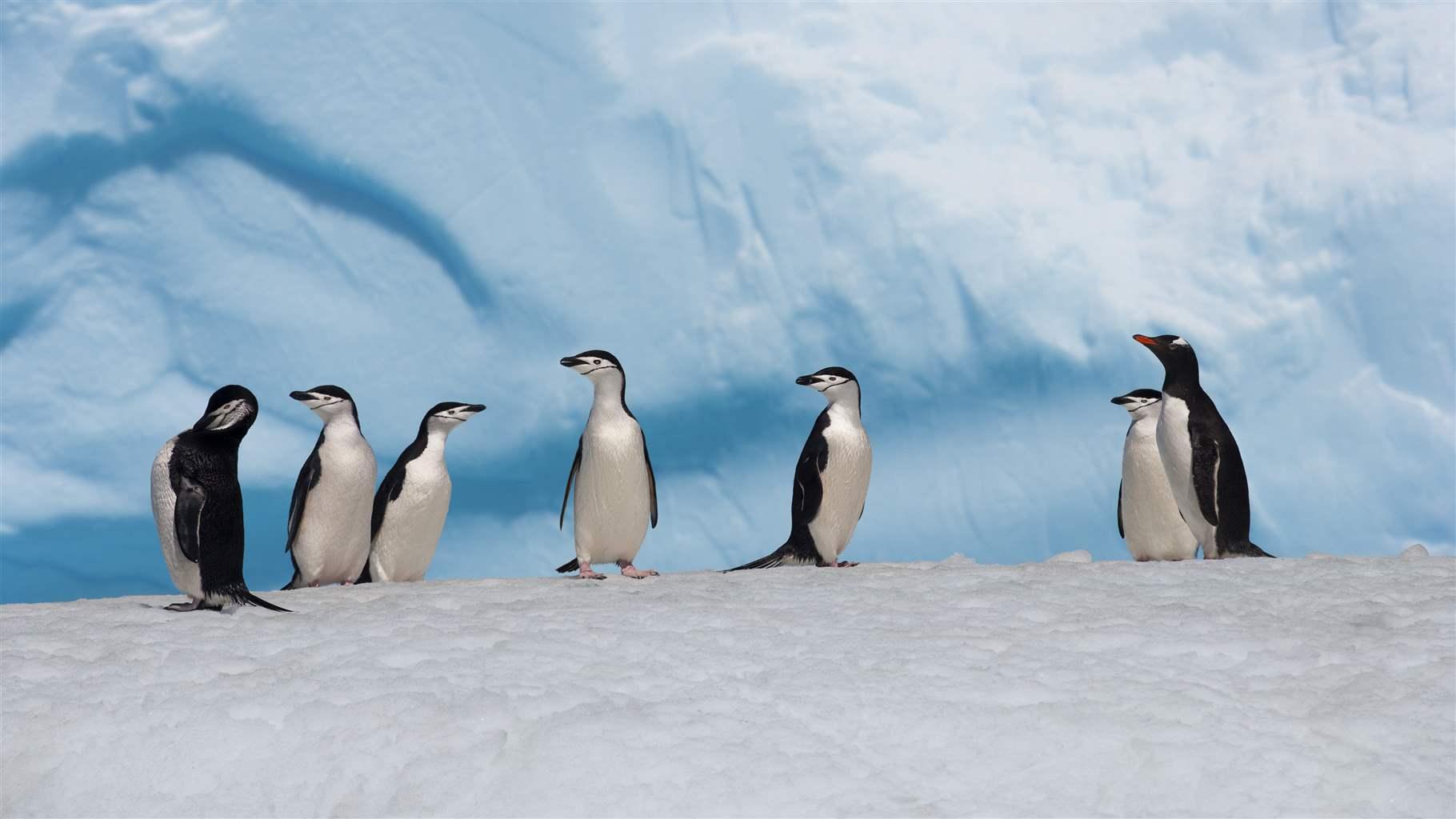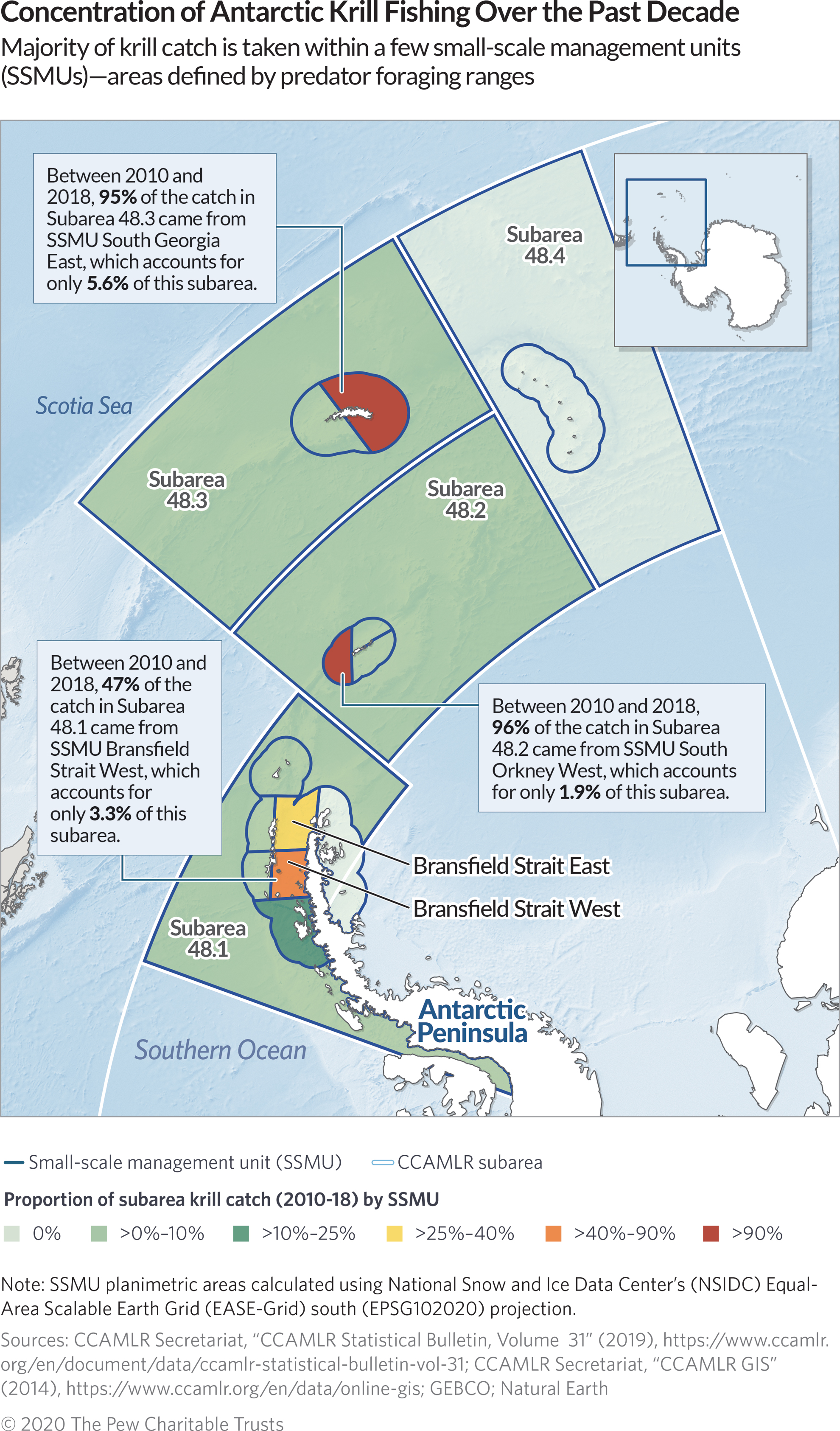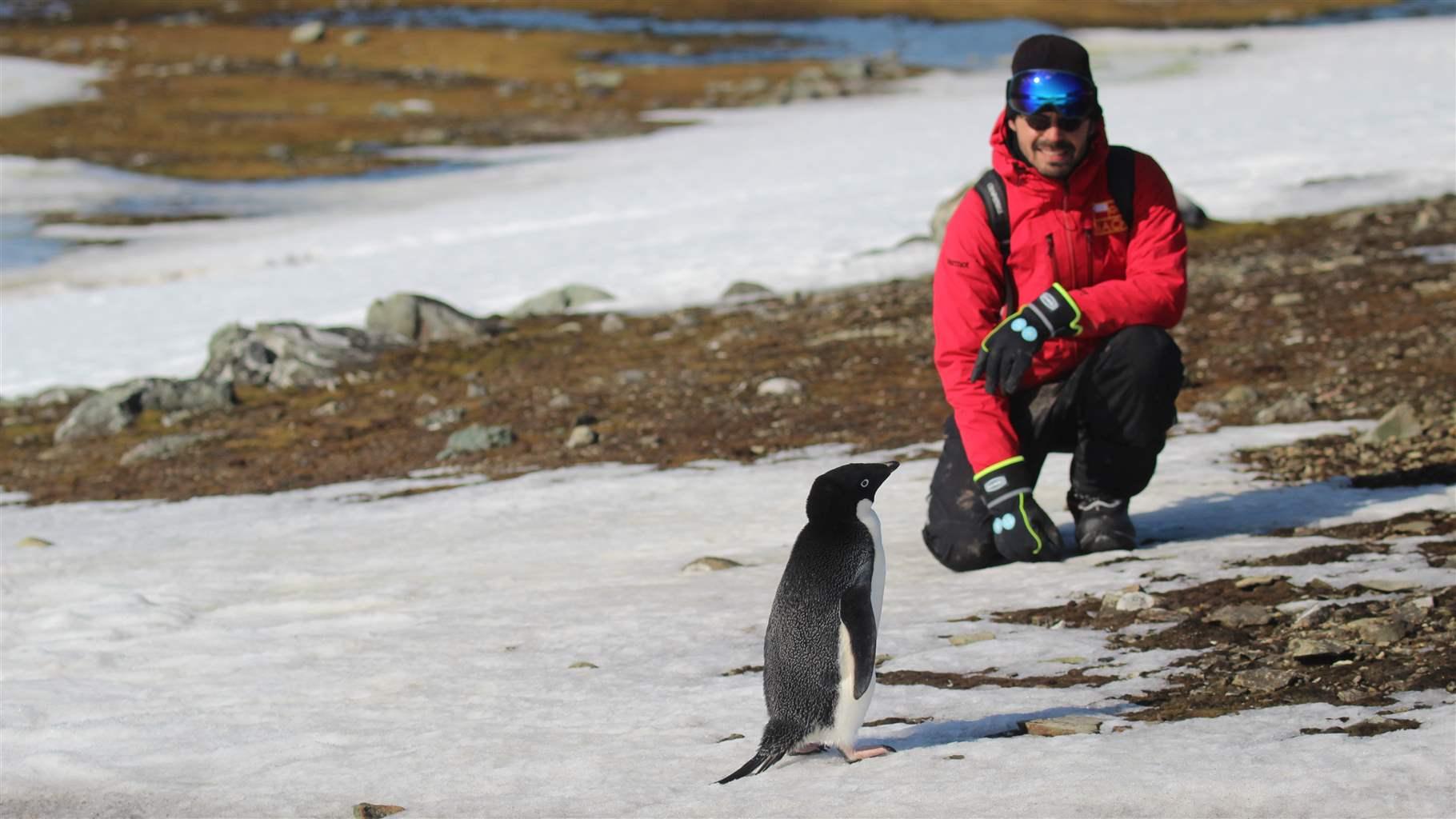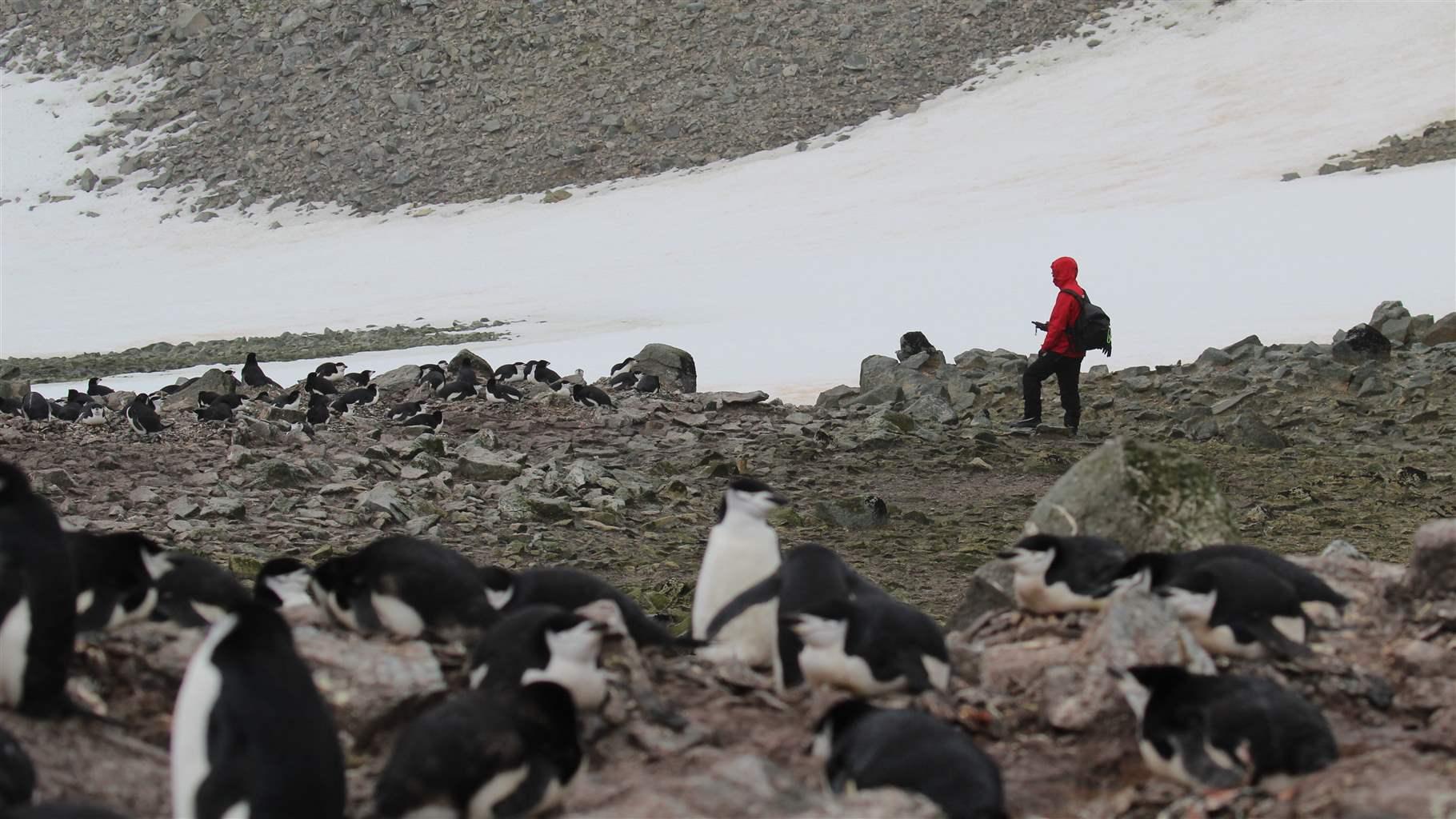Study Confirms Antarctic Penguins Are Harmed by Krill Fishing and Climate Change
By adopting effective marine protections, CCAMLR could offset adverse effects

The Antarctic Peninsula is a vast and fascinating region of ice, rock, and ocean that is teeming with resident wildlife. For close to a decade, advocates and scientists have been working to safeguard the peninsula. In 2018, a proposal to protect important areas for krill and its predators in the region was presented to the Commission for the Conservation of Antarctic Marine Living Resources (CCAMLR), the body that oversees biodiversity conservation in the region. CCAMLR has not yet agreed on those protections.
A new study underscores the benefits that marine protections would bring, not only to the millions of gentoo and chinstrap penguins found there but also to their main food source—krill—and the growing commercial krill fishery.
Pew talked to Lucas Kruger, an ecologist who co-authored the study, published last month in the journal Ambio. Kruger has focused on the effects of environmental change on marine top predators such as seabirds. Working for the Instituto Antartico Chileno, he attends CCAMLR meetings as a scientific adviser to the Chilean delegation. This interview has been edited for clarity and length.
Q: What drew you to study Antarctica?
A: In university I was doing my studies in an ornithology lab that was part of the first Brazilian academic institution to have scientists in Antarctica during the early 1980s. Later, I got the opportunity to work on my master’s degree about population ecology of giant petrels. I was enthusiastic about going to Antarctica, but it wasn’t my long-term plan to become an Antarctic scientist. But once I laid eyes on my first glacier and set foot on Elephant Island, I knew I must specialize in the study of Antarctic seabirds.
Q: What does your new research tell us about the effects of concentrated krill fishing and climate change on gentoo and chinstrap penguins?
A: Our findings indicate that very high nearshore krill catches during years with warm winters and low sea ice were associated with a decrease in penguin population sizes in the following year. That trend was consistent for chinstrap penguin populations throughout the peninsula, while population-level trends were more variable for gentoos. That is likely explained by differences in the biology of the species: Chinstraps are less flexible than gentoos in their feeding behavior, feeding almost exclusively on krill.
After warm winters preceded by higher fishing catches, penguins may not have enough krill near their breeding grounds to go around.
Q: You have been involved in the scientific analysis to develop the Antarctic Peninsula marine protected area (MPA) proposal that CCAMLR is considering. Do you believe that the proposed MPA would have immediate and lasting effects for the regional penguins, krill, and other wildlife?
A: I have no doubt about it.
Our results indicate that penguin breeding seasons preceded by high levels of local krill catch and a warmer winter tend to lead to lower penguin population sizes compared with the previous season. If those conditions become more frequent, the decreasing trend of penguins in the area due to warming could be exacerbated.
MPAs that prevent fishing at levels that pose a risk to penguins would likely help even in the short term. I stress that those effects would be beneficial not only for the krill, penguins, and other krill predators but for the fishery itself. There are several published studies showing that no-take or partially no-take MPAs allow stocks to recover from exploitation—and even boost fishing production—particularly in ecosystems threatened by both fishing and climate change.
Q: Are there additional recommendations you would propose for the Antarctic Peninsula and Scotia Sea region to counter threats to wildlife?
A: Climate change is likely to be the biggest stressor on the region. My recommendation is that we do our best, as soon as possible, to prevent fishing from becoming an additional problem. CCAMLR members are working on an ecosystem-based feedback management system for the krill fishery—that’s a promising strategy to make it more sustainable. However, that strategy may take a few years to fully develop and apply. In the meantime, implementing an MPA as a precautionary measure should help prevent fishing from having any unexpected consequence.
Q: What do you think it will take for CCAMLR to fully realize its mandate of conserving marine life in the Southern Ocean?
A: I think CCAMLR already realizes that but unfortunately has been slow to utilize one of the tools to protect the Southern Oceans: MPAs. That is likely a consequence of members blocking establishment of MPAs due to political issues that need to be addressed by the parties involved in the decision process.
The global community is increasingly aware of the need to protect our oceans, so the number of marine protected areas has been rising significantly in recent years. But not in Antarctica; the continental waters there are among the least protected in the world. This puts CCAMLR behind most of the world in terms of getting close to achieving 30% of ocean protection, which experts recommend and which the International Union for Conservation of Nature explicitly called for in 2016.
I really think that only through constant pressure from the international community on CCAMLR member governments will we be able to achieve that level of protection for Antarctica in the short term. Creating awareness and spreading out the word about what is happening down there is the way forward.










